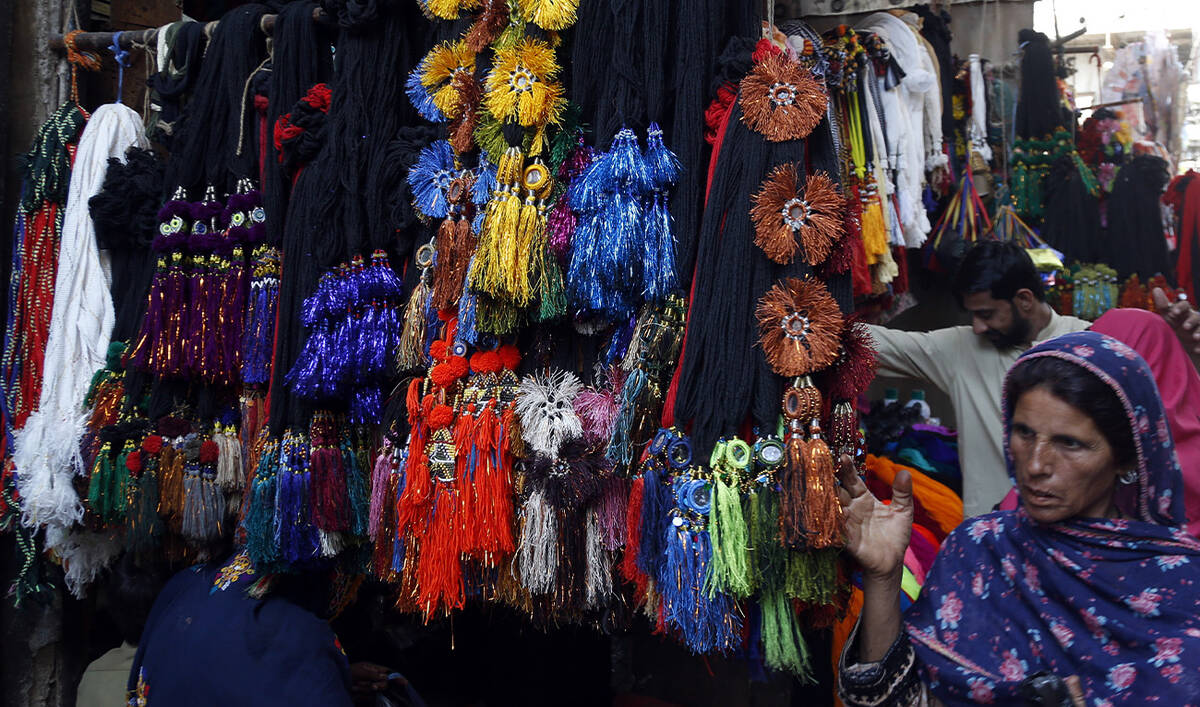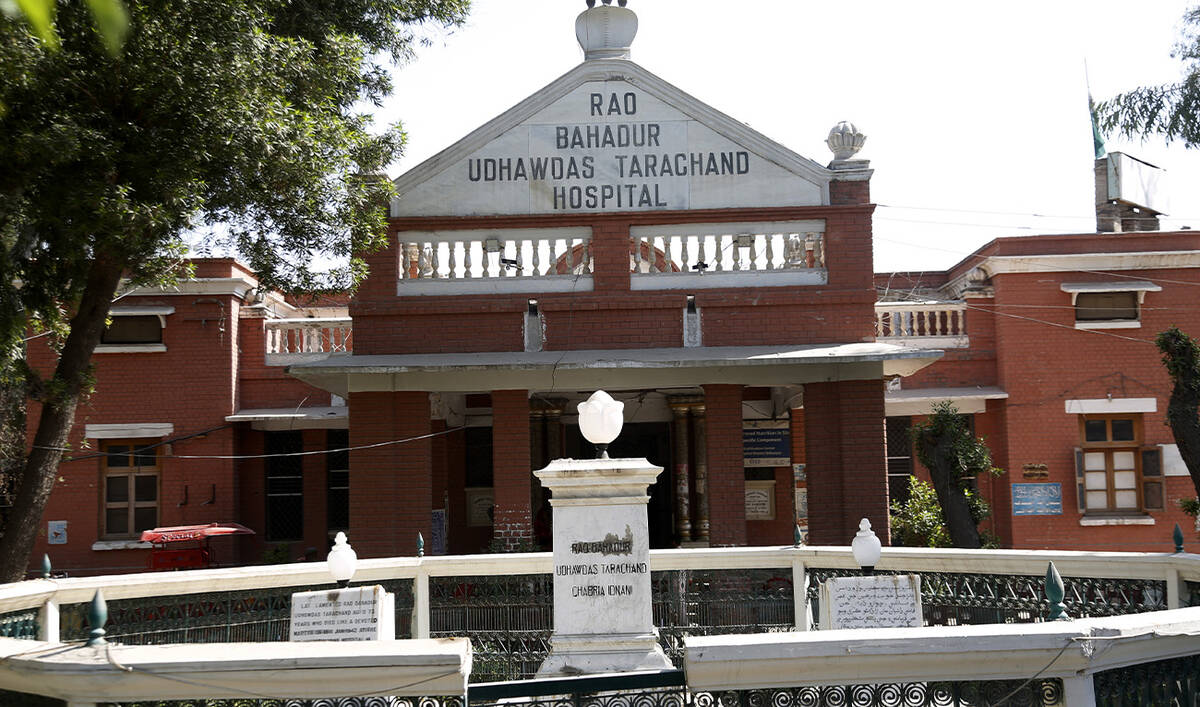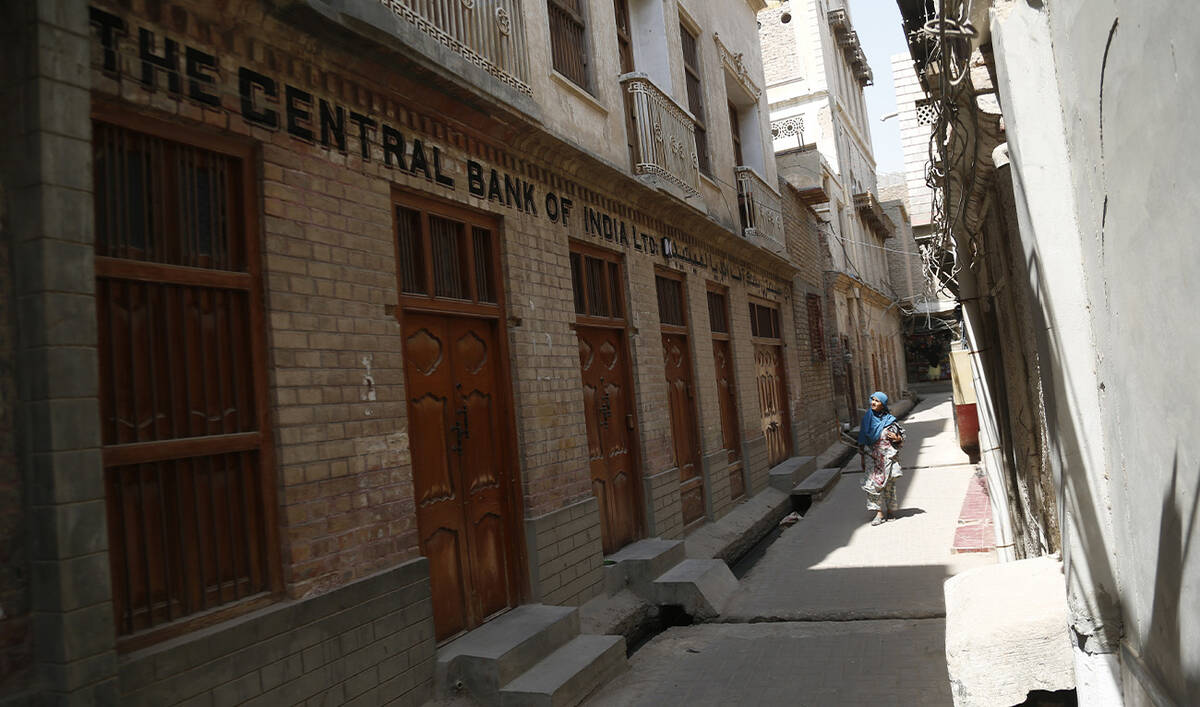ISLAMABAD: Bad weather on Monday forced Pakistani army helicopters to temporarily halt their search for three mountaineers who went missing while attempting to scale K2, the world’s second-highest mountain.
The search was stopped just hours after it resumed for the third consecutive day, with officials uncertain when weather conditions would improve enough for it to resume again. Friends and family of the three — Pakistani climber Ali Sadpara, John Snorri of Iceland and Juan Pablo Mohr of Chile — grew increasingly concerned for their fate in the harsh environment.
The three lost contact with base camp late on Friday and were reported missing on Saturday, after their support team stopped receiving communications from them during their ascent of the 8,611-meter (28,250-foot) high K2 — sometimes referred to as “killer mountain.”
Located in the Karakorum mountain range, K2 is one of the most dangerous climbs. Last month, a team of 10 Nepalese climbers made history by scaling the K2 for the first time in winter.
Waqas Johar, a district government administrator, said on Twitter that almost 60% of K2 was under clouds. The search and rescue team was unable to find any clue of the climbers' whereabouts so far, he said, adding it will attempt again once the weather improves.
Earlier, Sadpara’s son said in a video statement released to the media that the chances of the mountaineers' survival in the harsh winter conditions were extremely low. Sadpara, an experienced climber, had earlier scaled the world’s eight highest mountains, including the highest, Mount Everest in the Himalayas, and was attempting to climb K2 in winter.
“Miracles do happen and the hope for a miracle is still there,” said Karar Haideri, secretary at the Pakistan alpine Club. He said a statement from the authorities was expected later on Monday.
Sadpara's son Sajid Ali Sadpara, himself a mountaineer who was part of the expedition at the start but later returned to base camp after his oxygen regulator malfunctioned, said their chances after “spending two to three days in the winter at 8,000 (meters' altitude) are next to none."
The younger Sadpara praised the rescue and search efforts but said “as a climber, I know that ... only a miracle can save their lives.”
The younger Sadpara's oxygen regulator had malfunctioned when he reached K2's most dangerous point, known as Bottle Neck, earlier last week. There, he waited for his father and two other climbers for more than 20 hours but with no sign of them, he descended.
Since the climbers went missing, Iceland's foreign minister, Gudlaugur Thór Thórdarson, has spoken to his Pakistani counterpart, Shah Mahmood Qureshi, by telephone. According to Pakistan's foreign ministry, Qureshi assured him that Pakistan would spare no effort in the search for the missing mountaineers.
Although Mount Everest is 237 meters (777 feet) taller than K2, the K2 mountain is much farther north, on the border with China, and subject to worse weather conditions, according to mountaineering experts. A winter climb is particularly dangerous because of the unpredictable and rapid change in the weather.
Winter winds on K2 can blow at more than 200 kph (125 mph) and temperatures can drop to minus 60 degrees Celsius (minus 76 Fahrenheit). In one of the deadliest mountaineering accidents ever, 11 climbers died in a single day trying to scale K2 in 2008.
Bad weather halts Pakistani army search for missing climbers
https://arab.news/vmwrz
Bad weather halts Pakistani army search for missing climbers

- The search was stopped just hours after it resumed for the third consecutive day
- Pakistani climber Sadpara’s son says chances of the three mountaineers’ survival were now extremely low
Pakistan army chief vows ‘swift, resolute’ response to any military action by India

- General Syed Asim Munir witnesses Pakistan army’s high-intensity field training exercise drill near Jhelum
- Tensions surged after India blamed Pakistan for Apr. 22 attack on tourist resort in Indian-administered Kashmir
ISLAMABAD: Pakistan Army Chief General Syed Asim Munir on Thursday vowed that any military misadventure by India would be met with a “swift, resolute” response amid surging tensions between the nuclear-armed neighbors.
These remarks came from Munir while he visited the Tilla Field Firing Ranges (TFFR) near the eastern city of Jhelum to witness “Exercise Hammer Strike,” a high-intensity field training exercise conducted by Pakistan Army’s Mangla Strike Corps. The army continued to hold war exercises on Thursday in a bid to demonstrate its military might to its neighbor.
Pakistan has vowed to give a befitting and “strong” response to any military action by India as tensions surged after New Delhi blamed Islamabad for being involved in an attack on Indian-administered Kashmir on Apr. 22.
Islamabad has denied involvement in the attack, which killed 26 people and prompted both countries to take several hostile measures against each other. These included India suspending a decades-old water-sharing treaty, suspending visas for Pakistani nationals and declaring its military advisers “persona non grata.” Pakistan responded with tit-for-tat measures.
“Let there be no ambiguity: any military misadventure by India will be met with a swift, resolute, and notch-up response,” Munir was quoted as saying by Pakistan military’s media wing. “While Pakistan remains committed to regional peace, our preparedness and resolve to safeguard national interests is absolute.”

Munir lauded the high morale, combat proficiency and warfighting spirit of Pakistan’s officers and troops at the firing ranges, terming them the “embodiment of Pakistan Army’s operational excellence.”
The military said that the exercise was designed to validate combat readiness, battlefield synergy and operational integration of cutting-edge weapon systems under near-battlefield conditions.
“A diverse array of advanced capabilities, including multirole fighter aircraft, combat aviation assets, long-range precision artillery and next-generation field engineering techniques were employed to simulate conventional battlefield scenarios,” it said.
RUBIO CALLS FOR DE-ESCALATION
Separately, US Secretary of State spoke to Prime Minister Shehbaz Sharif on Wednesday to discuss the regional situation. As per the US State Department, Rubio urged Islamabad to cooperate in the attack’s investigation and de-escalate the situation.
“The Secretary urged Pakistani officials’ cooperation in investigating this unconscionable attack,” the State Department said. “He also encouraged Pakistan to work with India to de-escalate tensions, re-establish direct communications, and maintain peace and security in South Asia.”
According to Sharif’s office, the Pakistani premier asked Washington to impress upon India to “act responsibly” and “dial down the rhetoric.”
“He [Sharif] categorically rejected Indian attempts to link Pakistan to the incident and pointed to his call for a transparent, credible, and neutral investigation to bring out the facts,” the PMO said.
Rubio also spoke to India’s External Affairs Minister Subrahmanyam Jaishankar on Wednesday, expressing sorrow for the loss of lives in the Apr. 22 attack. He also encouraged India to work with Pakistan to de-escalate tensions and maintain peace and security in South Asia, the State Department said.
India poses serious threats to regional peace, Pakistan tells OIC envoys

- Tensions surged after India blamed Pakistan for deadly attack on tourists in Indian-administered Kashmir on Apr. 22
- Several countries such as US, UK, Iran, China, Saudi Arabia, UAE and others have called on both sides to show restraint
ISLAMABAD: Pakistan’s Permanent Representative to the United Nations (UN) Ambassador Asim Iftikhar briefed the Organization of Islamic Cooperation (OIC) Group of Ambassadors about Islamabad’s ongoing tensions with New Delhi on Thursday, state-run media reported, informing them that New Delhi poses serious threats to regional peace and security.
Tensions have surged between the two countries following a deadly attack on tourists in Indian-administered Kashmir on Apr. 22 that New Delhi has said Pakistan was involved in. Islamabad denies the charges and has said it will participate in any credible and transparent investigation of the assault.
Several countries such as China, Saudi Arabia, Iran, UK, US and others have called upon both India and Pakistan to exercise restraint and avoid a military confrontation. Pakistan has vowed to give a “strong” response to any aggression after Indian Prime Minister Narendra Modi gave the military freedom to respond to the Kashmir attack during a closed-door meeting earlier this week.
“He informed the participants that India, through its politically motivated, irresponsible and highly provocative behavior, has posed serious threats to regional peace and stability,” Radio Pakistan said on Thursday.
The state-run media said OIC members expressed full support and solidarity with Pakistan, calling for “de-escalation through diplomatic engagement” and urging the resolution of the Kashmir dispute in accordance with UN Security Council and OIC resolutions.
India and Pakistan both claim the entire disputed Kashmir region but administer only parts of it. New Delhi accuses Islamabad of funding militants in the valley which Islamabad denies.
On Wednesday, Prime Minister Shehbaz Sharif urged US Secretary of State Marco Rubio during a phone call to impress upon New Delhi to “act responsibly” amid fears of a military confrontation breaking out between nuclear-armed neighbors.
Pakistani state media had also reported that a “timely” response by the Pakistan Air Force on Wednesday had “forced” four Indian Rafale jets to retreat after payrolling near the two nations’ de facto border.
‘Treasure of history’: Shikarpur’s fading grandeur tells a story of loss

- Located in southern Sindh, Shikarpur city was once a major regional trade hub
- The 1947 migration of Hindus left the city’s architectural legacy neglected
SHIKARPUR, Sindh: Once dubbed the “Paris of Sindh” for its perfumed gardens and vibrant markets, the historic city of Shikarpur in Pakistan’s southeastern region now stands as a shadow of its former self — its havelis weathered, its bazaars dimmed and its legacy slipping into silence.
Founded in 1617, the city was once home to grand mosques, ornate Hindu temples and covered markets. These structures continue to stand as a tribute to Shikarpur’s bygone era, marked by extraordinary economic supremacy and cultural diversity.
The city rose to prominence during the eighteenth and nineteenth centuries as a powerful trade hub linking South and Central Asia. Its merchants dealt in precious stones, textiles and other high-value goods, extending their influence to markets in Kabul, Bukhara, Samarkand and beyond.
“It’s like a treasure of history. It’s like a treasure of heritage sites,” said Professor Anila Naeem, whose 2017 book, Urban Traditions and Historic Environments in Sindh: A Fading Legacy of Shikarpur, extensively documents the city’s historic fabric.
“For me the woodwork is the most fascinating,” she added. “Woodwork, which is not just plain and simple woodwork, but it has iconography in it which reflects the religious inclinations, the political inclinations ... those buildings speak of the history of that city, which was definitely very, very rich.”

Rajpal Rewachand, a businessman and lawyer in the city, maintained the role of Hindu settlers was pivotal in the city’s development, noting that their arrival along trade paths spurred commercial expansion and the construction of many still-standing heritage structures.
“The city’s development happened when Hindu settlers arrived,” he said while standing within the historic Pooj Udasin Samadha Ashram, a once-thriving religious and community complex.
“Before them, the majority of the residents were either Punjabis or people who had migrated from Tashkent, Samarkand and Bukhara.”
The city’s signature Dhak Bazaar, a covered market said to be one of the oldest of its kind in South Asia, and landmarks like the Shahi Bagh, Clock Tower and Tara Chand Hospital were once considered marvels of civic infrastructure.
At the height of its economic might, Shikarpur operated both formal and informal financial systems. The informal banking system was so reliable, according to locals, it made traveling with cash unnecessary.
“If someone had to travel to any corner of the world, they wouldn’t carry money with them,” said Nazeer Ahmed Qureshi, a cloth merchant in Dhak Bazaar, adding a stamped note by a local merchant would get him money.

“No matter where in the world one traveled, Shikarpur’s money was recognized,” he added.
But the city that was once surrounded by lush gardens and fruit groves is now clearly in decline.
According to Mehdi Shah, a local researcher and author, Shikarpur went into a downward spiral after the Hindu trading families were uprooted during the 1947 Partition.
“After the Partition of India, the Hindu population migrated, and their architectural legacy was not maintained as it once was,” he said.
As the city’s ownership shifted and wealth drained away, its buildings were left to deteriorate. Those who moved into the once-grand havelis lacked the means to preserve them, accelerating the decline.

“The shift in ownership, coupled with the activities of antique dealers, has placed these architectural treasures at increased risk,” Shah added.
The decay is not just physical but institutional. Despite a 1998 notification declaring the entire city a heritage site under the Sindh Cultural Heritage Protection Act — and a 2013 effort to designate 1,203 properties as protected — most of Shikarpur’s historic buildings have been left to deteriorate.
Professor Naeem said that restoration could help revive both the city’s cultural pride and economic fortunes, particularly if Pakistan invests in heritage tourism.
Sitting amid the fading relics in the heart of Dhak Bazaar, cloth merchant Qureshi reflects on the distance between memory and present reality.
“Such a beautiful past— such a grand historical city, a magnificent city with its rich culture, trade, lifestyle,” he said, his voice echoing through the narrow, shop-lined passage. “It feels like a dream, as if stepping into another world.”
3 Pakistani security personnel killed in raid on a militant hideout

- Pakistan police say insurgents were “Khawarij,” a term government uses for Pakistani Taliban
- Last week Pakistani forces killed 71 militants attempting to enter through Afghanistan, says military
PESHAWAR: Pakistani security forces overnight raided a militant hideout in northwest Pakistan, sparking a shootout in which three officers and one suspect were killed, police said Thursday.
The raid occurred in Bannu, a district in the Khyber Pakhtunkhwa province, police Arshad Khan said. Other insurgents fled the scene. Khan said the insurgents were “Khwarij” — a phrase the government uses for the Pakistani Taliban.
The Pakistani Taliban, known as Tehreek-e-Taliban Pakistan, have launched some of the deadliest attacks against Pakistani law enforcers and civilians since 2007.
Last week, Pakistani security forces killed 71 militants when they attempted to cross into the country from Afghanistan, according to the military.
Pakistani Kashmir closes seminaries fearing Indian military strikes

- Islamabad says has credible intelligence India intends to launch military action soon
- Muslim-majority Kashmir is claimed in full but ruled in parts by both India and Pakistan
MUZAFFARABAD: The government of Pakistan-administered Kashmir has closed all religious seminaries in the region for 10 days, officials said on Thursday, citing fears they would be targeted by Indian strikes following a deadly attack on tourists in Indian Kashmir.
Islamabad says it has credible intelligence that India intends to launch military action soon, with New Delhi alleging that the attack on tourists was carried out by Pakistani nationals with ties to militant organizations based there.
The director of Pakistani Kashmir’s Department of Religious Affairs, Hafiz Nazir Ahmad, told Reuters that security officials feared Indian forces may target seminaries and label them as militant training centers.
The notification seen by Reuters, dated April 30, only cited a heatwave as the reason for the closure.
“Right now, we are facing two kinds of heat — one from the weather and the other from (Indian Prime Minister) Modi,” Ahmad said of the notification, saying they did not mention the risk of attacks in a bid to avoid panic.
India’s foreign ministry did not immediately respond to a request for comment. India has previously targeted sites in Pakistan alleging they were bases of militants close to the Kashmir border.
“We held a meeting yesterday in which it was unanimously decided not to put innocent children at risk,” Ahmad said. The President’s Office of Pakistani Kashmir also said the closure was due to “precautionary reasons.”
There are 445 registered seminaries with over 26,000 students enrolled in Pakistan-administered Kashmir, according to the religious affairs department.
The seminaries — locally known as madrasas — are Islamic educational institutions run by religious organizations, providing cheap, often free, alternatives to regular schools.
Pakistan has said it will respond “assuredly and decisively” to any military action from India, raising the specter of war between the two nuclear-armed countries.
Kashmir, a Muslim-majority Himalayan region, is claimed in full but ruled in parts by both India and Pakistan, and has been the site of two wars and multiple skirmishes.
Many Muslims in Indian Kashmir have long resented what they see as heavy-handed rule by India. In 1989, an insurgency by Muslim separatists began. India poured troops into the region and tens of thousands of people have been killed.
India accuses Pakistan of arming and training militants, which Islamabad denies, saying it offers only moral and diplomatic support. Seminaries have been criticized for radicalizing youth toward extremism.











